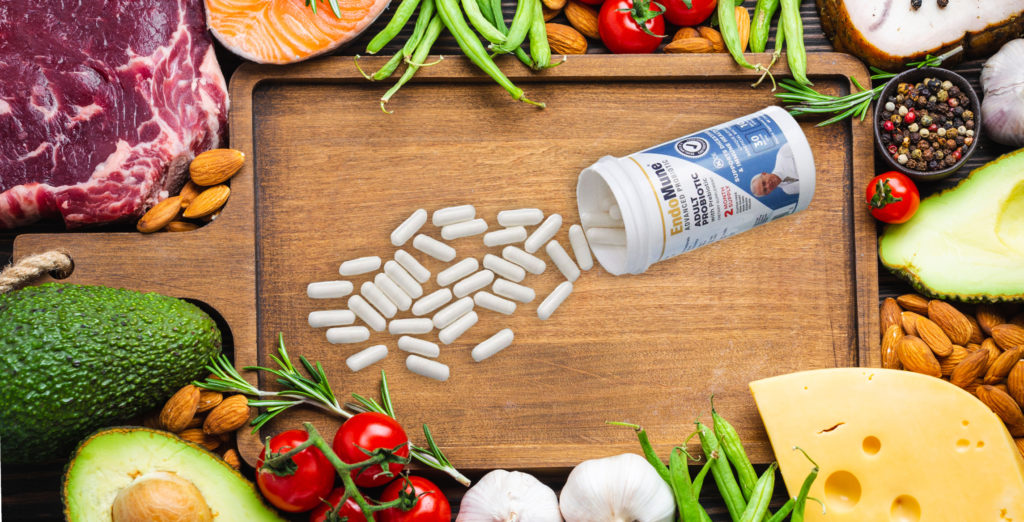Protect Your Gut on the Paleo Diet
You’ve probably heard of the Paleo Diet, one of the more popular diet strategies people use to lose weight.
Designed to imitate what scientists believe cavemen/cavewomen ate, this diet focuses on a narrower number of foods (lean meats, fresh fruits, eggs, non-starchy vegetables, nuts, seeds, plant-based oils and fish).
Although the tradeoffs — avoiding grains, dairy products and processed foods — can be a deal-breaker for some, growing research points to the Paleo Diet aiding in safe weight loss, improved cardiovascular health and lower BMIs.
As you make drastic alterations in your diet, however, the balance of bacteria in your gut changes too and not always for the better, particularly for your heart.
The heart-gut link
Foods rich in choline like liver and red meats that are part of a Paleo Diet plan may also increase the production of TMAO (trimethylamine N-oxide), which has been linked to an increased risk of blood clots that cause stroke and heart attacks, in the gut.
An Australian research team examined the effect of following a Paleo Diet by comparing the health of 44 patients on the meatier diet with a control group following more balanced diets.
A series of examinations determined that Paleo Diet patients had double the level of TMAO compared to the control group.
So, how did that happen?
Paleo Diet patients had some serious imbalances in their gut bacteria, including elevated levels of gut microbes like Hungatella. These kinds of microbes produce greater amounts of TMAO and lower levels of beneficial gut bugs that ferment dietary fiber like Bifidobacterium.
“Many Paleo diet proponents claim the diet is beneficial to gut health, but this research suggests that when it comes to the production of TMAO in the gut, the Paleo Diet could be having an adverse impact in terms of heart health,” says lead researcher Dr. Angela Genoni from Australia’s Edith Cowan University.
A probiotic solution
At first look, a simple solution for this looming heart-harming problem — increasing your intake of dietary fiber by eating whole grains — may work, but there goes your weight loss plan.
But, if you’re doing well on a Paleo Diet, a safer, smarter and healthy solution for treating this imbalance of gut bacteria is just as easy.
Taking a probiotic like EndoMune Advanced Probiotic with 10 strains of beneficial bacteria from the Bifidobacterium and Lactobacillus families may make a world of difference, not only for your gut health, but your heart health too.
If weight loss and improved heart health are part of your dietary goals, you should consult with your physician and consider adding EndoMune Metabolic Rescue to your regimen too.
EndoMune Metabolic Rescue’s unique formula of Bifidobacterium lactis and the prebiotic XOS improves metabolic efficiency and boosts weight loss by stimulating the release of hormones that decrease your appetite and promote a greater sense of fullness.
When taken with EndoMune Advanced Probiotic, EndoMune Metabolic Rescue work together to support healthy blood sugar and cholesterol levels.
Gut health and weight loss are very doable when you have the right tools like probiotics!
References
Protect Your Gut on the Paleo Diet Read More »

 Then, researchers fed the samples one of two diets—a predigested grassy, high-fiber diet or a predigested potato, high-starch diet—then tracked the changes in bacteria.
Then, researchers fed the samples one of two diets—a predigested grassy, high-fiber diet or a predigested potato, high-starch diet—then tracked the changes in bacteria.